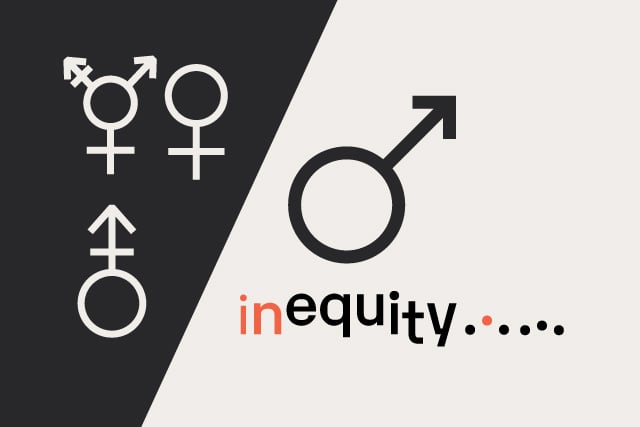Want to Improve Your Company Culture? Don’t Act Like a Politician
Bill Casey CEO & Partner#Industry Insights

How to avoid emulating the actions of politicians, who often say one thing and do another, in order to create a positive company culture.
Election season… If you’re like me, you’ve been inundated with robo-calls, commercials, and mailers from politicians begging and pleading for your vote, or at least scaring you away from voting for the other guy. When you get past the slogans and one-liners however, there is a common underlying tactic to every political campaign: they are trying to convince you that their way is better, and your condition will improve if you simply give them your vote. They want to change the current state of affairs and offer a fresh start leading toward better days. Sounds great, but for all of the endless talk and promises that are heaped onto the electorate, very little seems to ever actually change. Political infighting still happens, the economic condition of the average family doesn’t change much, we are divided as a country, and our perception of our government officials continues to diminish.
As dysfunctional as this political system is, there is a sliver lining. Politicians provide a good example of how NOT to act when you’re trying to effect change in your agency in order to improve the company culture.
The Thing About Culture
A company’s “culture” can be a tricky topic, especially when you talk about changing it. A lot of what we see and read about great company culture focuses on a casual work environment, beer in the fridge, bringing your dog to work, flexible work hours, etc. So improving your company culture should be easy; just start doing things like this, right? Well, not exactly. The thing is, you can’t change a culture by offering the perks and flexibility often associated with great culture. Culture is simply the reflection of your core values, beliefs and attitudes as a company. Having a beer at your desk will not create a great culture when you’re constantly afraid of losing your job and can’t trust your co-workers. Instead of focusing on the outward signs of a great culture, looking at and changing the factors that influence the everyday behaviors and attitudes is what will change the culture. The rest of the stuff is just the after effects.
Politicians regularly talk about changing direction and doing things differently in order to make everyone’s life better. And every couple of years, we have elections to vote these politicians out when things don’t happen they way we thought they would. It’s an ongoing pendulum swing between one party or politician's message and another’s. Real change never seems to happen. Companies fall victim to the same situation. Most forward leaning companies want to have a great culture and be a place where people want to show up to work and accomplish great things. But truly getting there is a difficult journey. There are some great success stories like Netflix and HubSpot, where culture is a cornerstone of everything they do and a key factor in their success. Many companies try, but ultimately fail to emulate both the culture and success of these organizations, not for lack of trying, but by focusing on the wrong things.
So what can politicians teach us about building a great culture? Here a few things politicians often do that company leaders should avoid at all costs.
Talking About Making Positive Change to Win Believers, but Not Following Up
This is the stuff of most political campaigns. “A chicken in every pot and a car in every garage”... This will get you elected, but if people aren't eating chicken and driving a new car in fairly short order, you’ll be looking for a new job. Company leaders, like politicians, need to rally the base. Employees should hear from their leaders that there is a plan in place for greater prosperity, a vision that they can all share in and feel good about, and leadership to guide them in the right direction. But it takes more than talk. Eventually, when the realities of working for a company are seen as never moving toward the dream, words will begin to ring hollow and pessimism will grow.
This doesn’t mean you should avoid talking about the possibility of what can be out of fear that you might not be able to deliver. Consistent action and decisions supporting the vision need to be implemented, showing everyone that you are committed to pursuing the dream and are enlisting everyone’s help. When making positive change becomes a team effort led by genuine intentions and real effort, cultural gains are realized, even if the ultimate goals aren’t achieved. But simply talking a good game to boost morale and win the short term battle for hearts and minds won’t be effective for long.
Forgetting Who They Serve
They’ll fight for you, they’re on your side, they’ll bring your concerns to Washington, D.C. Sound familiar? Politicians talk a lot about their dedication to serving the public and representing their constituents' voice in their elected office. But all too often, the voice being represented is either their own or that of the largest campaign donors. When voters are relegated to being a means to an end, but an end that doesn’t represent their best interest, something is broken.
In a company, employees are the life blood. They are the ones who produce the work, talk to clients, innovate, and make the dream a reality. Taking care of their needs and trusting in their ability to do their jobs is an essential factor in any great company culture. When company leadership is focused solely on the bottom line or metrics on a spreadsheet and forget about the people whose lives are so intertwined with the organization, culture suffers. It becomes an “us vs. them” mentality where employees feel devalued and become more concerned with protecting their own position rather than working as a team for the betterment of all. But when employees feel protected and trusted and are given the tools and flexibility to excel at their jobs, they will rise to the occasion.
Demonizing the Competition
Political campaigns today are about 1/4 talking about achievements and qualifications and 3/4 scaring the bejeezus out of you if you’re considering voting for the opponent. If campaign commercials are true, most of the politicians running for office are borderline sociopaths that actively wish harm and destruction on their fellow citizens (at least those from the other party). Of course, this is mostly overblown scare tactics at work, but it is effective at garnering votes. But what is the result? We have a bitterly divided populace that is unwilling to cooperate with those with opposing beliefs and supports politicians that take the same stance. It doesn’t take much to figure out why government isn’t able to get much done when they foster a culture of distrust and demonization of the opposition.
Companies, like politicians, face competition day in and day out and must fight for their share of business. It's easy to cast those that are trying to win business away from you in the most negative light possible. They’re hacks, they’re liars, they cheat their clients, they’re dumb… This can help build team unity, but at what cost? When this type of negative attitude toward outsiders is allowed to flourish, it supports a culture of intolerance and exceptionalism that runs the risk of negatively affecting all relationships within a company. Demanding clients that cause frustration and headaches (who doesn’t have those?) may be openly derided when that sort of attitude is in practice. Co-workers that aren’t as knowledgeable or don’t have as much experience may be mocked for their shortcomings. Any spirit of cooperation and support can quickly be drained from an organization when they’re unwilling or unable to acknowledge the worth and value of those on the outside.
Avoiding Talking about the Bad Stuff
Many politicians are loath to admit mistakes. Avoiding anything that makes them look bad, or even incorrect, is often the number one rule in political PR. Unfortunately, things don’t always go as planned. What may have seemed like a good idea at one time can often come back to bite you. In politics, the rule seems to be to avoid talking about or acknowledging any sort of wrongdoing or mistake at all costs, even if this unwillingness to change negatively affects those they are supposedly serving. There are also times where painting an overly optimistic picture does more harm than good when the reality doesn’t match the message. Who really benefits when a politician is more concerned with his or her own image than discussing the truth?
Most companies face ups and downs all the time. There are negative economic realities that need to be dealt with and problems that can come from any angle. Trying to hide these from employees only serves to build distrust and disconnection. Rather than sugar coating every problem a company might face, leaders should deal with them head on with transparency and honesty. In many companies, annual profitability drives bonuses. If the company does well, bonuses are paid. However, if the company does not do as well as planned and cannot afford bonuses, its a far better option to admit the economic reality than to paint a glowing picture about the status of the company and then leave employees wondering why they didn’t get a bonus. Employees will feel a sense of personal responsibility when they understand exactly what the problem is and are shown a path to help resolve it. While not getting a bonus is a disappointment, knowing than there is a plan to boost profitability and understanding what role everyone can play in turning things around will keep motivation high and build a sense of trust and teamwork.
Value Trust and Respect, Not Politics
So how do these lessons actually affect a company’s culture? Defining a vision and reinforcing that vision every day will create a shared sense of purpose and an excitement about doing the work. Trusting employees and allowing them the freedom to use their talents and their creativity to work the way they are most comfortable will produce the best achievements. Valuing respect over competition will build strong relationships both inside and outside the company. Transparency about the inner workings of the company will build trust and a sense of personal responsibility among employees. Once these types of values are in place, things like beer in the fridge, free lunch Wednesdays, and unrestricted PTO will organically happen. But more importantly, you’ll be building a company that people love and will give their all to help succeed.
Related Posts

Why You Need an SEO Content Audit in your Migration Plan
Diagram's Allison Casey spills all her insider SEO tips on migrating your content the right way.

Establishing Equitable Management Practices
It's International Women's Day and Dennis Kardys shares some things we’ve done at Diagram to be mindful of bias and take steps to embrace diversity.
Results Matter.
We design creative digital solutions that grow your business, strengthen your brand and engage your audience. Our team blends creativity with insights, analytics and technology to deliver beauty, function, accessibility and most of all, ROI. Do you have a project you want to discuss?
Like what you read?
Subscribe to our blog "Diagram Views" for the latest trends in web design, inbound marketing and mobile strategy.
